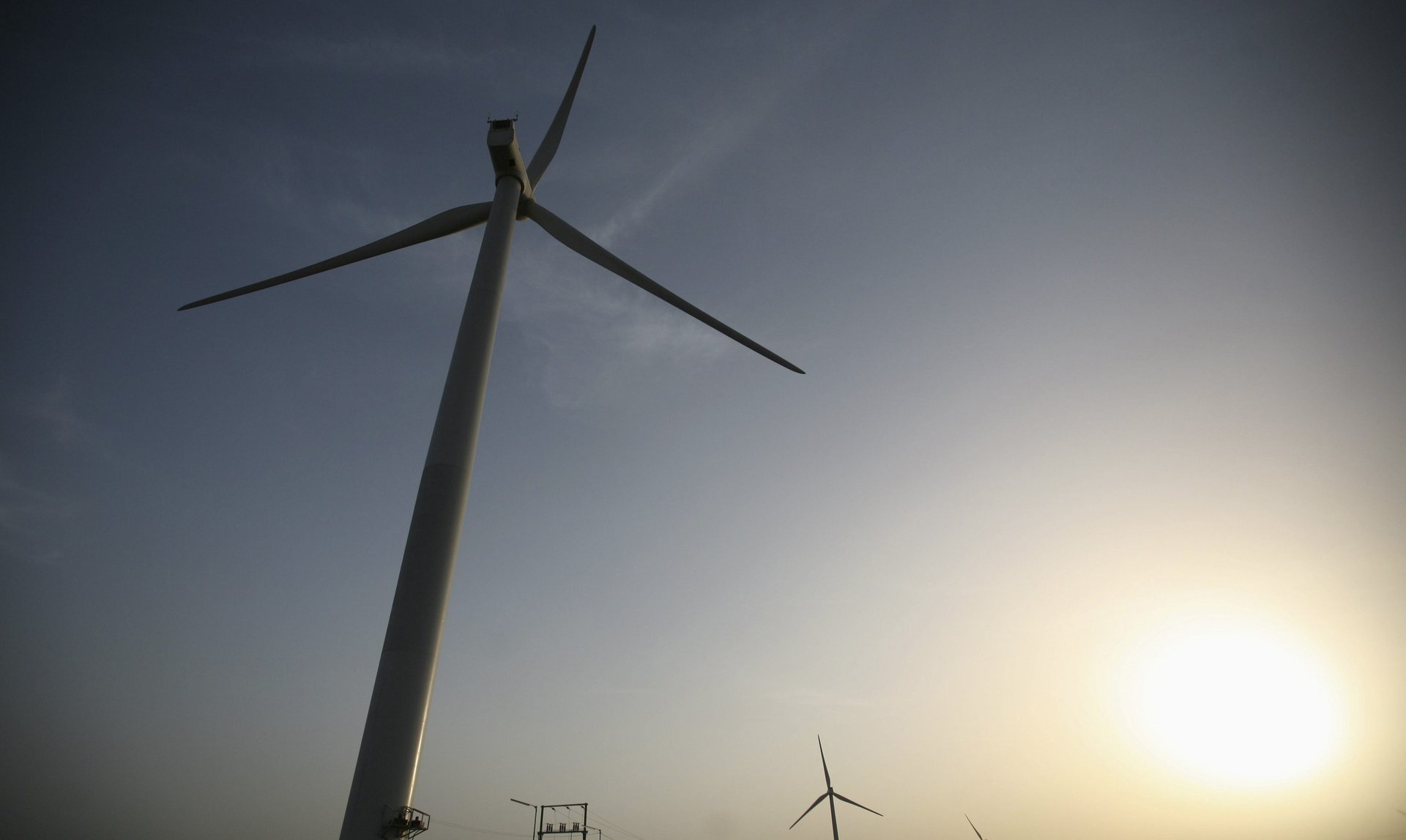A timeline: The Mexican standoff in Andhra Pradesh, India’s renewable energy badland
The southern Indian state of Andhra Pradesh has been locking horns with renewable energy developers for the better part of this year.


The southern Indian state of Andhra Pradesh has been locking horns with renewable energy developers for the better part of this year.
The state’s loss-making utilities have long wanted older wind projects to reduce the price of the electricity they supply. These rates were agreed upon by the government and developers and fixed generally for 25 years. The government-run utilities have been asking developers to lower them to the levels quoted in recent auctions for renewable energy projects in other parts of the country.
Developers, though, contend that capital costs have fallen considerably over the past few years, and the recent lower purchase prices don’t reflect what they were for older projects.
Add politics to this mix. Since his election victory in May, Andhra Pradesh’s new chief minister, Jaganmohan Reddy, has ramped up pressure on developers to agree to lower rates. His demand for the revision of power purchase agreements (PPAs) comes amidst a wider push to discredit and undo the deals signed under the previous administration.
Meanwhile, renewable projects worth an estimated Rs21,000 crore ($2.93 billion) are at risk of turning into bad loans. Developers’ cash reserves are dwindling, given the Rs9,735 crore in pending payments from various state utilities. Andhra Pradesh’s entities lead this set with Rs2,509 crore.
Here’s a timeline of the many letters and orders that have marked the battle this year:
June 9: Anand Kumar, secretary of the national ministry of new and renewable energy, writes to the chief secretary of Andhra Pradesh, LV Subramanyam, asking the state to not renegotiate PPAs.
June 26: State government sets up sub-committee to probe corruption in renewable energy deals.
July 1: State government sets up committee to renegotiate PPAs.
July 9: RK Singh, India’s minister of power and new and renewable energy, writes to Reddy, advising against PPA revision. “If the contracts are not honoured, the investments stop coming,” he says.
July 12: Andhra Pradesh Southern Power Distribution Company, the state-owned utility, writes to 139 renewable energy projects, seeking revised rates matching the market low of Rs2.44 per kilowatt-hour.
July 15: Wind developers seek banks’ intervention, saying revised PPAs would hit loan repayments.
July 23: Reddy writes to the prime minister’s office confirming plans to renegotiate PPAs.
July 25: Andhra Pradesh high court puts on hold proceedings of the government’s tariff renegotiation panel. The state utilities severely reduce the amount of electricity bought from the renewable projects in contention, prompting allegations of arm-twisting.
July 27: Andhra power regulator says the state utility has withdrawn requests for 21 PPAs approvals. The panel’s nod is a necessary step after a PPA is signed.
July 29: Tribunal nudges the state regulator to approve tariffs for solar projects in which central government-owned organisations, Solar Energy Corporation of India (SECI) and National Thermal Power Corporation (NTPC), are counterparties to the contract. This is a preventive step that developers had pushed for—they do not sign a deal with state governments directly, but with SECI or NTPC. These entities then sign the next leg of the contract with the states.
July 30: Singh reportedly writes to union home minister, Amit Shah, apprising him of the showdown.
Aug. 1: The ministry of new and renewable energy writes to all states, asking them to not refuse the purchase of electricity generated from solar and wind projects, which are entitled to a “must run” status.
Aug. 7: Japanese ambassador to India, Kenji Hiramatsu, writes to Reddy, warning that “foreign investors, including Japanese companies, are now watching closely the situation unfolding in your state regarding the renewable energy sector.”
Sept. 24: High court junks tariff panel, asking state power regulator to handle the renegotiation; wants dispute resolved in six months. It orders state utility to keep buying power from the contested projects, though at a temporary low rate of Rs2.44 for solar projects and Rs2.43 for wind projects.
Sept. 21: Singh writes to Reddy, again asking him to not renegotiate PPAs. This is in response to Reddy’s letter to the central ministry saying that the previous state administration had favoured purchase of expensive electricity from renewable sources over cheaper electricity from thermal plants.
Sept. 28: State regulator approves PPAs for pending solar projects backed by NTPC and SECI; no opposition from state utility.
Oct. 15: High court stays central government’s decision to prevent Andhra Pradesh from buying electricity on the power exchange instead of wind farms with which it had signed PPAs.